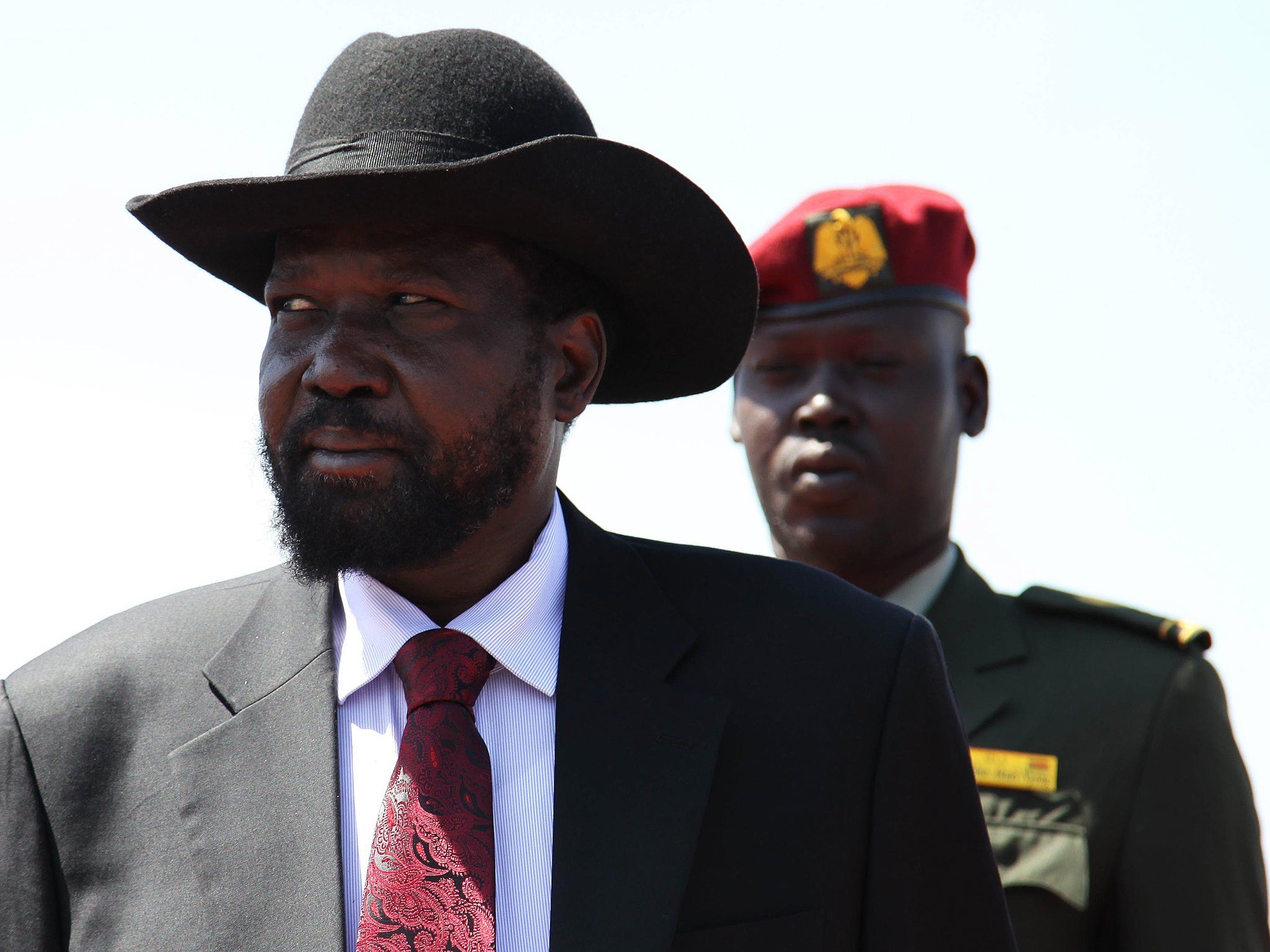South Sudan plunged into political crisis as president dissolves the government in power struggle
Wave of sackings aimed at removing country's powerful vice president Riek Machar

Your support helps us to tell the story
From reproductive rights to climate change to Big Tech, The Independent is on the ground when the story is developing. Whether it's investigating the financials of Elon Musk's pro-Trump PAC or producing our latest documentary, 'The A Word', which shines a light on the American women fighting for reproductive rights, we know how important it is to parse out the facts from the messaging.
At such a critical moment in US history, we need reporters on the ground. Your donation allows us to keep sending journalists to speak to both sides of the story.
The Independent is trusted by Americans across the entire political spectrum. And unlike many other quality news outlets, we choose not to lock Americans out of our reporting and analysis with paywalls. We believe quality journalism should be available to everyone, paid for by those who can afford it.
Your support makes all the difference.South Sudan has been plunged into a political crisis after the president Salva Kiir dissolved the government, fired his vice president and dismissed its lead negotiator in talks with the north. The world's newest nation has been rocked by a power struggle within the ruling party that has evoked fear of a return to violence or even civil war.
United Nations personnel and foreign aid workers in the country are on lockdown after the surprise announcement was made without warning on state television late on Tuesday. So far there have been no reports of serious disturbances.
The wave of sackings was aimed at removing the country's powerful vice president Riek Machar, analysts said, without appearing to target the ethnic group from which he hails. With elections expected in 2015 a succession battle has been raging behind the scenes in a country that has been propped up by aid money and patronage but whose next generation of leaders will control significant oil revenues.
A fortnight on from its second birthday South Sudan is showing worrying signs of unravelling. Among the birthday messages was an open letter from an influential group of US lobbyists calling themselves the “friends of South Sudan” expressing concern at rampant corruption and human rights abuses.
“We cannot turn a blind eye when yesterday's victims become today's perpetrators,” the authors wrote.
One of the letter's authors, the US academic Eric Reeves, said that the dissolution of the government was part of a sucession struggle that may open up the country's most dangerous ethnic divide – that of the Dinka and Nuer, South Sudan's two largest communities.
“The president is exhausted after eight years of running the country (two as an independent state) and dealing with perpetual crises,” said Mr Reeves. “The fact that Riek is moving as aggressively as he has been recently may account for the timing.”
The oil production on which South Sudan depends for almost its entire budget has halted once again in another row with the north, which is the only route to market for southern crude. The north accuses South Sudan of providing support to rebel groups inside its territory, a charge it denies.
The ruling Sudan People’s Liberation Movement (SPLM), grew out of the guerrilla army (SPLA) that fought a twenty year civil war with the north, and has struggled with the transition to civilian rule. It is riven by ethnic divisions with the most dangerous rivalry between the two largest ethnic groups, the Dinka and the Nuer.
Mr Machar hails from the second most numerous group, the Nuer, while the president is Dinka. The more nimble and charismatic Mr Machar has openly targeted the top job and was stripped of many of his powers by Mr Kiir in April in an apparent attempt to derail his bid to seize control of the ruling party. The wholesale clearout avoids giving the impression that the Nuer are being unfairly sidelined.
A conflict between the pair evokes painful memories of the civil war when Mr Machar left the SPLA midway through its battle with the north. This triggered the most murderous chapter of the struggle with clashes between the Nuer and Dinka remembered by many as the “civil war within the civil war”. This period, which included an alliance with Sudan's president Omar al-Bashir, is seen as unforgivable to many southerners.
Any hopes of resolving the oil impasse have also been set back by the firing of Pagan Amum, chairman of the SPLM and its lead negotiator with the north. He has been accused of corruption, a charge that has dogged many senior government figures. Mr Amum denies corruption allegations.
A leaked World Bank report last year suggested that as much as $4bn had been lost to graft in the fledgeling state.
Join our commenting forum
Join thought-provoking conversations, follow other Independent readers and see their replies
Comments